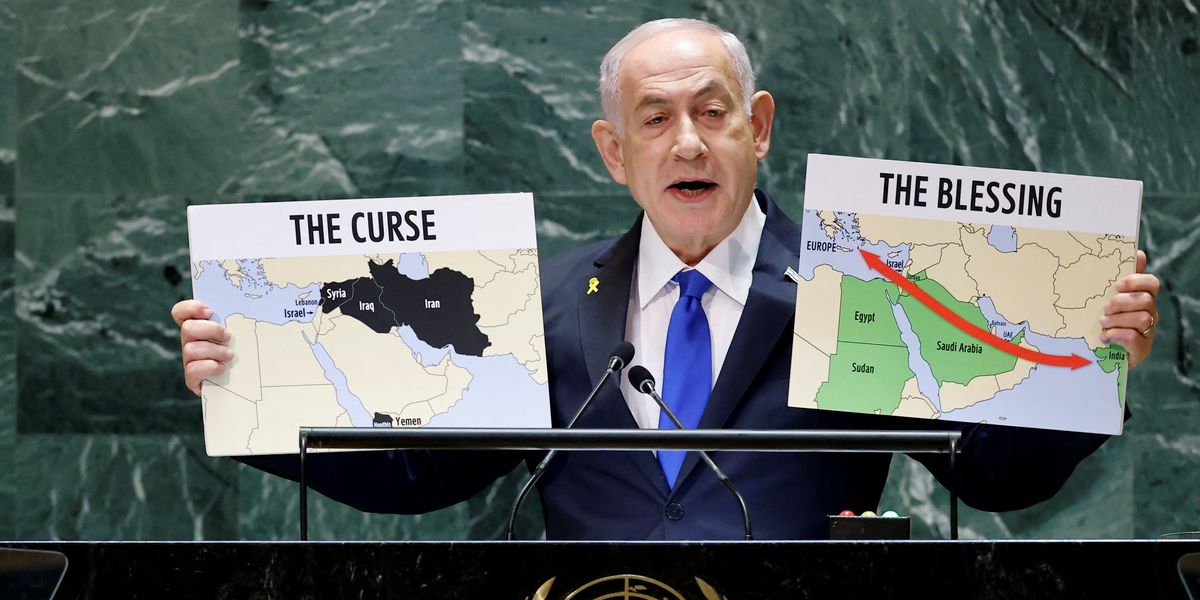The Escalating Tensions in Lebanon: A Region on the Brink of War
The Middle East is once again facing a precarious situation, with Lebanon at the epicenter of escalating tensions. Senior diplomats have raised alarms about the deteriorating situation, warning that the region is teetering on the brink of a full-scale war. This article delves into the recent developments, the key players involved, and the potential implications for the broader Middle East.
A Volatile Landscape
The backdrop of this crisis is marked by a series of Israeli airstrikes that have targeted Hezbollah positions in Lebanon. Sergey Lavrov, Russia’s Foreign Minister, addressed the United Nations, emphasizing the gravity of the situation. He stated, "the Middle East is on the brink of a full-scale war," a sentiment echoed by other international leaders who are closely monitoring the developments.
Israeli Prime Minister Benjamin Netanyahu also took to the UN stage, presenting his vision for the future of the region. He displayed placards labeled "curse" and "blessing," symbolizing the dual nature of the challenges and opportunities facing the Middle East. However, the military actions undertaken by Israel have only exacerbated the already precarious situation in Lebanon, threatening stability not just locally but across the region.
The Role of Hezbollah and Iran
Hezbollah, the Lebanese militant group and political party, has found itself in a precarious position following the Israeli strikes. Reports indicate that Hezbollah’s leader, Hassan Nasrallah, has been unreachable since the airstrikes targeted Beirut’s southern suburbs. While sources close to the group have reassured that he is alive, the uncertainty surrounding his fate adds to the tension.
The strikes have galvanized support for Hezbollah within Lebanon, with many citizens rallying to the group’s side. This shift in public sentiment poses a significant challenge for Israel, which has been conducting targeted strikes against what it deems "bad actors" within Hezbollah. The group’s primary backer, Iran, has also reacted strongly, with protests erupting in support of Hezbollah and condemnation directed at the United States and Israel.
International Reactions and Warnings
The international community has responded with increasing concern. U.S. Defense Secretary Lloyd Austin has joined Lavrov in warning of the potential for a devastating war between Hezbollah and Israel. He has called for diplomacy as a means to de-escalate the situation, emphasizing that a full-blown conflict would have catastrophic consequences for both sides.
Jordan’s Foreign Minister has also weighed in, accusing Netanyahu of driving the region toward a full-fledged war. The rhetoric from various nations underscores the urgency of the situation, as countries with vested interests in the region express fears of a wider conflict.
The Humanitarian Impact
As tensions rise, the humanitarian implications for Lebanon are becoming increasingly dire. The British government has issued a stark warning to its nationals in Lebanon, advising them to leave the country immediately. The Foreign Office has urged British citizens to register their presence and take the next available flight out, highlighting the seriousness of the situation.
The potential for civilian casualties and displacement is a pressing concern, as military operations intensify. The Lebanese population, already grappling with economic hardships and political instability, faces the prospect of further suffering in the event of a prolonged conflict.
Conclusion: A Call for Diplomacy
The situation in Lebanon serves as a stark reminder of the fragility of peace in the Middle East. As Israeli airstrikes continue and Hezbollah prepares for potential counter-strikes, the risk of escalation remains high. The international community must prioritize diplomatic efforts to prevent a full-scale war that could engulf the region.
In these turbulent times, the voices of reason and calls for dialogue are more crucial than ever. The stakes are high, and the consequences of inaction could be devastating for Lebanon and the broader Middle East. As the world watches, the hope for a peaceful resolution hangs in the balance.
